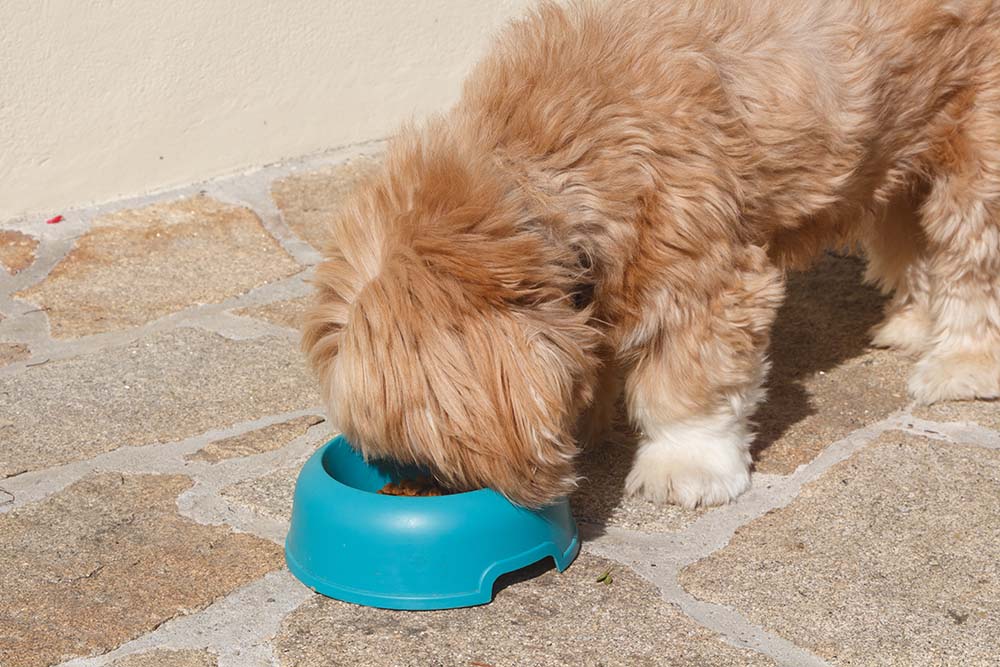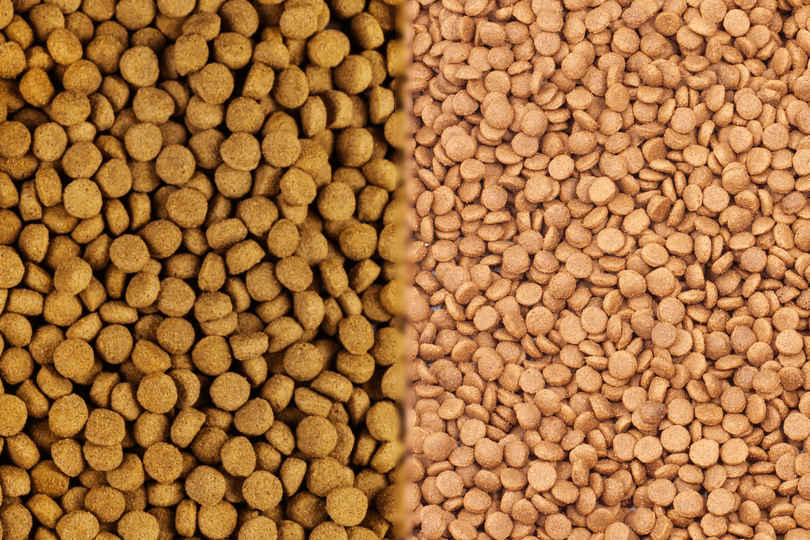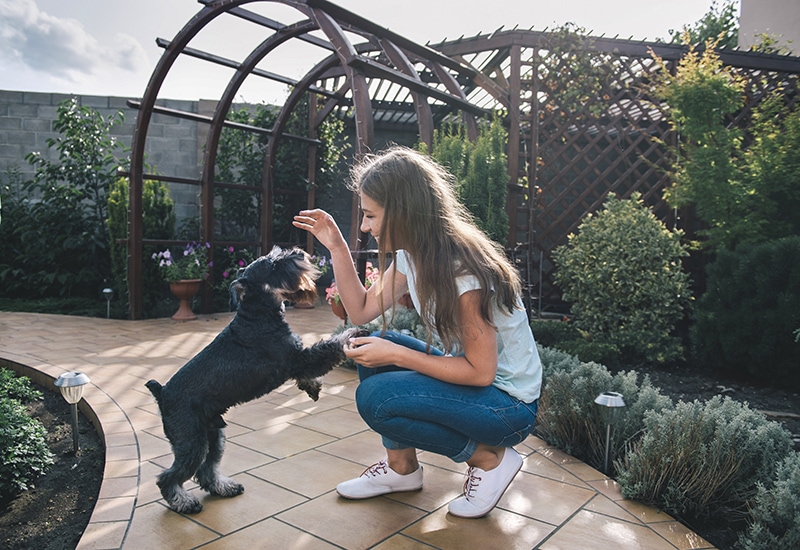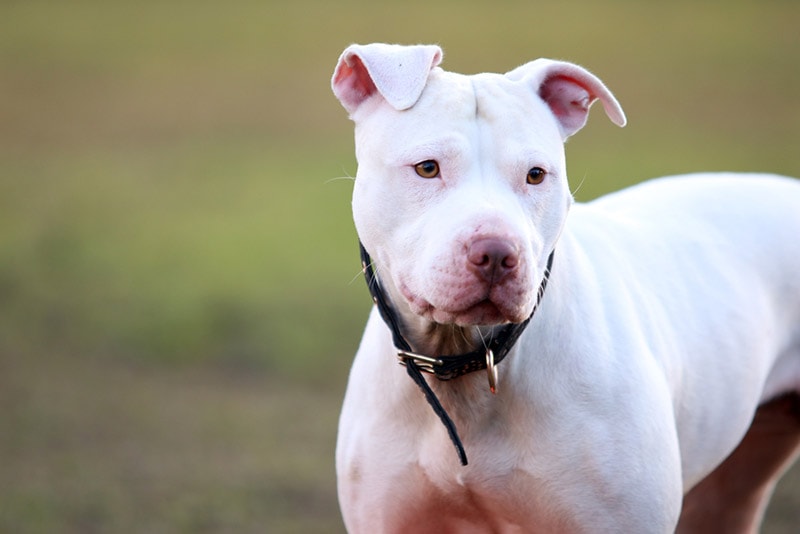Is Grain-free Dog Food Bad for Dogs? Vet-Approved Facts to Know
By Brooke Bundy
Updated on

For the past fifteen years, grain-free specialty diets have been hitting the shelves out of concern over a growing number of dogs suffering from food sensitivities. Grain was the suspected culprit, especially since it was believed that dogs couldn’t digest grains (they can), and that dogs did not evolve to eat grains.
Although bigger companies were on board, smaller boutique companies championed the grain-free movement, seeking to go against commercial market trends. However, recent studies by the FDA suggest that they may have missed the mark by blaming grain for the allergy spike. New research correlates grain-free diets high in peas, lentils, and potatoes to canine dilated cardiomyopathy (DCM), a potentially fatal heart condition. This discovery urges us to take a step back and investigate whether or not a grain-free diet may be worth the risk.

Is Grain-Free Healthy?
Grain-free has been touted as the most healthy choice, along with other recent innovations such as fresh pet food instead of dry kibble. This was done in good conscience, citing the alarming rise of dog food allergies and the 2007 tragedy involving toxic wheat gluten from China that killed thousands of dogs. However, more recent studies show that grain-free formulas may pose health risks, leading us to think that they may not be the best choice unless your dog needs to go grain-less for medical reasons.
In 2018, a study by the FDA found a connection between grain-free formulas and DCM. It also linked foods containing high amounts of peas, lentils, and potatoes to the disease. This leads us to question whether the correlation is caused by the lack of grain or the addition of these carb-heavy vegetables.
Between 2014 and 2019, the FDA received over 500 reports of dogs diagnosed with cardiomyopathy. 90% of these dogs were on grain-free diets. Statistically, that’s a strong correlation, but it’s actually not a big number, given that there are an estimated 77 million dogs in the United States, and many of them are fed grain-free diets. The grain-free trend began in 2007, but strangely enough, there were fewer than 10 reports of DCM in the years leading up to the investigation.
Once the FDA announced the study, the numbers surged. As of yet, there isn’t enough information to condemn grain-free diets, but 500 dogs diagnosed with DCM is still a number that’s a cause for concern and further investigation.

Why Some Dogs May Need a Grain-Free Diet
Some dogs are allergic to grains, especially wheat. A grain-inclusive diet may be more difficult for some dogs to digest, resulting in bloating and gas. If your dog isn’t thriving on their diet, talk to your vet about a better food option and report any allergy symptoms. Some things to look out for include:
- Excessive itching and scratching
- Dry, flaky skin
- Chronic ear infections
- Biting their paws
- GI upset
Some people wonder if their diabetic dog could benefit from a grain-free diet. Actually, it’s a complex issue. While food with simple carbohydrates such as corn might not be the best choice, a grain-inclusive food featuring complex carbohydrates can provide your dog with nutrition that they might otherwise miss in a grain-free diet.
Also, grain-free diets are more likely to be loaded with other carbs such as potatoes. A grain-inclusive diet that relies on a heart-healthy grain such as brown rice is likely to be lower on the glycemic index than a grain-free formula based on potatoes.

Alternatives to a Grain-free Diet
Although some dogs may need a grain-free diet, it’s more common for dogs to be allergic to proteins such as dairy and meat than grains. Did you know chicken and beef are two of the top five most common dog allergens? This may come as a surprise to you since they’re two popular proteins in dog food.
If you think your dog might have food allergies, in light of recent research, it’s probably best to switch the protein in their diet before trying a grain-free formula. For example, if your dog is allergic to chicken, you could try a novel protein such as rabbit, venison, or even pork. Even if your dog is allergic to wheat, you might not have to go grain-free.
You can easily find a gluten-free, grain-inclusive diet that relies on oats or rice instead of wheat. While there are specialty diets marketed for dogs with food allergies, there’s no reason to buy an expensive, limited-ingredient diet as long as you read the label thoroughly.
Make sure the new food doesn’t contain any of the allergens in question—even if it’s not listed as a primary ingredient. For example, a Fish & Potato recipe could still contain chicken livers.
Conclusion
The FDA found a strong correlation between grain-free diets and cardiomyopathy, but there hasn’t been enough research yet to determine whether this connection is caused by the lack of grain or the large amounts of legumes used as a grain substitute. If your pet displays any food allergy symptoms, talk to your vet about finding a new formula that avoids common allergens such as chicken or dairy. Before switching to grain-free, investigate if the formula is species-appropriate and not loaded with excessive non-grain carbohydrates.
Featured Image Credit: Aurelie le moigne, Shutterstock











